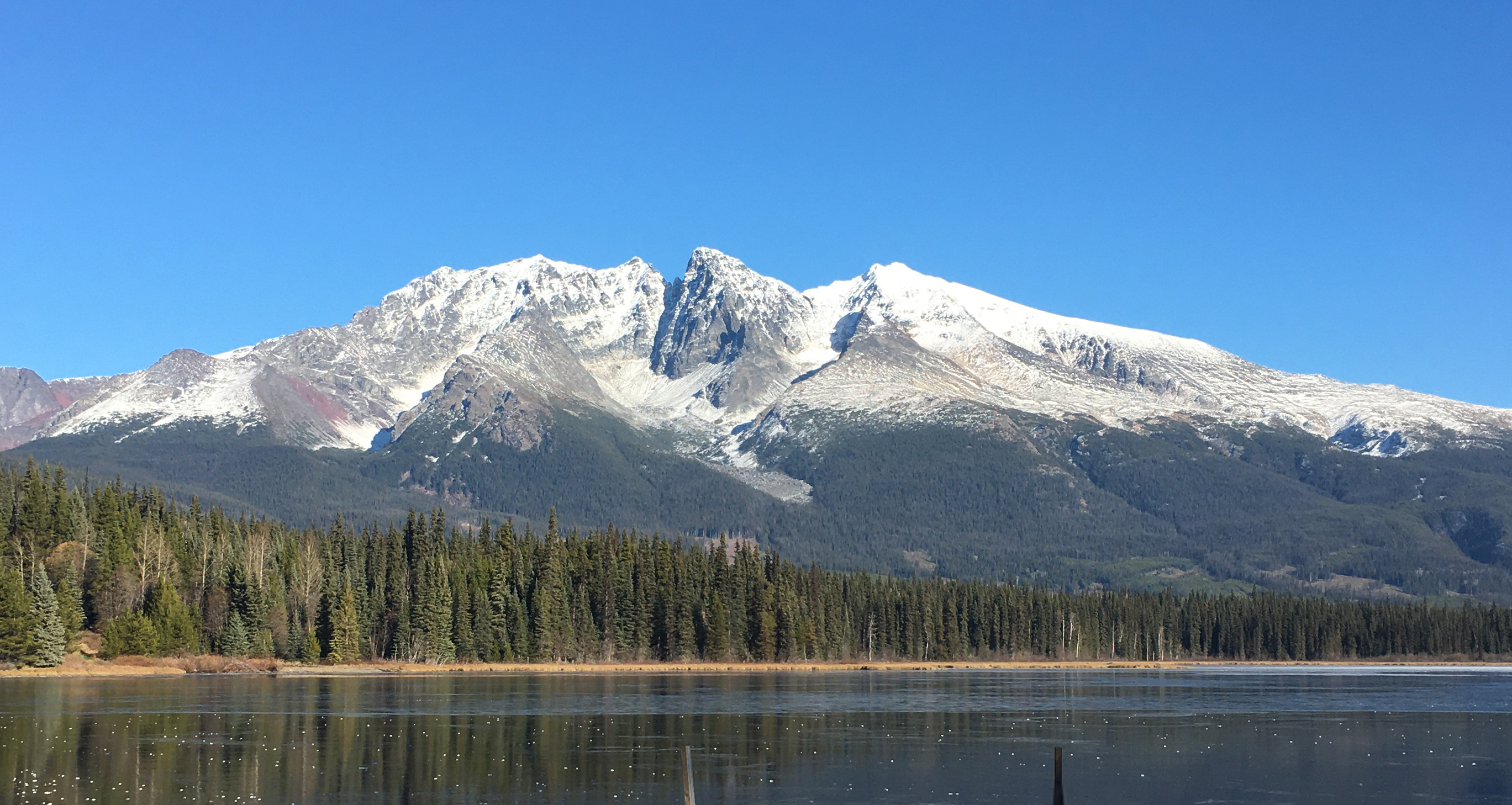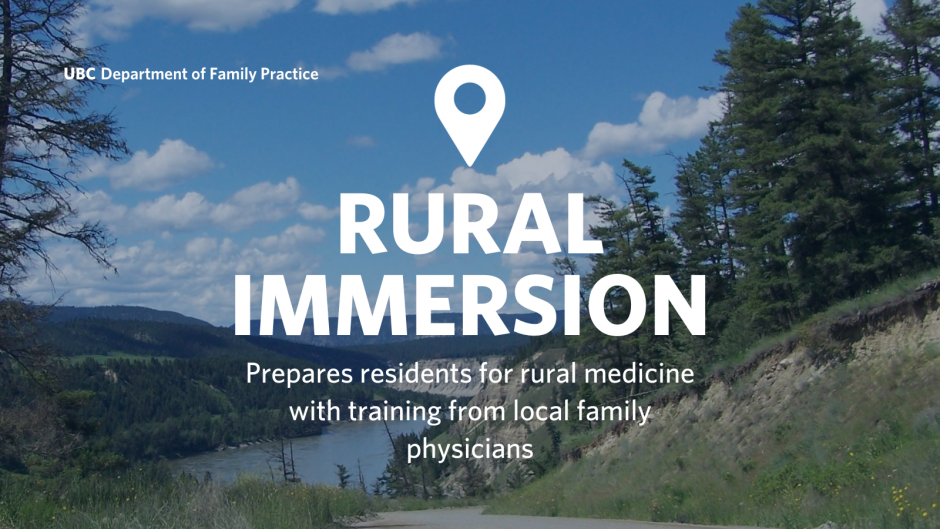
Rural Immersion
Message from the Site Director
We are James Card and Bron Finkelstein, co-site directors for the Prince George, Northern Rural, and Rural Immersion Family Practice Programs. As graduates of UBC’s Prince George Family Practice Residency Program, we now practice rural medicine in Valemount and Chetwynd, respectively. Our shared passion for full-service family practice and rural/remote medicine drives our goal to develop an exceptional program that transforms residents into competent, confident physicians for Northern and Rural British Columbia.
This innovative program is unique among family practice residencies, designed for those aspiring to practice in small rural communities or seeking comprehensive clinical skills. If you are passionate about rural practice or becoming a well-rounded clinician, we invite you to explore our program. It offers an excellent opportunity for residents to shape their education by customizing their residency experience to align with their learning goals.
-Dr. James Card and Dr. Bron Finkelstein
**To be considered for this program please contact James or Bron at james.card@unbc.ca bron.finkelstein@ubc.ca **
Site information is available at the bottom of this page.
Check out our site video here.
Our current list of eligible communities includes:
Lead Residents Message
If your goal is to practice in rural settings, pursuing a rural-focused residency program is highly recommended. UBC’s Rural Immersion Program exposes residents to low-resource environments from the start, aiming to graduate confident family medicine practitioners ready for the challenges of rural life. Residents gain hands-on experience in small communities, fostering lasting connections with local healthcare teams that ease the transition into practice.
The program features nine rural communities in northern BC, including Smithers, Quesnel, and Burns Lake. Residents are matched to one community for their entire residency, allowing them to manage their schedules and pursue learning opportunities tailored to their needs. This includes the option to rotate off-site for specialties not available locally, such as pediatrics or ICU.
Residents experience a comprehensive range of rural family medicine, including emergency care, obstetrics, and palliative care, often participating in procedures as the primary provider. Some communities also host visiting specialists, broadening the learning experience.
Support is robust, with weekly academic half days and courses like ALARM, NRP, and ATLS, provided by the dedicated admin team in Prince George. You’ll be part of a cohesive cohort, meeting regularly for orientation, academic sessions, and social events.
If you see yourself working in a rural environment, value autonomy, and wish to shape your own learning experience, consider the Rural Immersion Program. It offers a unique opportunity to develop your skills in an engaging and supportive setting.
Sincerely,
Dr. Jenn Vandenberg
Resident testimonial:
Hi! I’m Kacper, one of the residents piloting the Rural Immersion program in Quesnel, BC. This program is like none other – literally. I’ve been fortunate to focus on different aspects of family practice that interests me, from emergency to general clinic to anesthesia. I can tailor my curriculum with the surrounding family practitioners to better hone skills I want. No other experience allows that constant improvement! Acute, chronic, procedural skills – you name it! I’ll add that it has been an incredible experience to witness longitudinal care, not to just rotate in and out of the clinic without follow up. If you’re looking for a program that’ll turn you into a clinician you want to be, highly consider the rural immersion program in BC! Feel free to contact me if you have questions. kacperniburski@gmail.com
Kacper Niburski, Current R1 Rural Immersion Site, Quesnel community site
Site Purpose
This program aims to train residents for competent practice in low-resource rural hospital settings, covering ER, office, obstetrics, and inpatient care.
Matching Process
- Match to program through CaRMS
- Flexibility for resident preferences
- Community connections considered
Ideal Candidates
- Aspire to practice in small rural communities
- Value rural family physician training
- Appreciate autonomy, flexibility, and responsibility
- Seek strong relationships with preceptors, patients, and healthcare team
- Prefer living in smaller rural communities
- Desire comprehensive rural practice skills
Program Uniqueness
- Community-based learning from family physicians
- Flexible schedule to accommodate diverse experiences
- Online checklist approach for tracking experiences
- Supplementary rotations in larger centers as needed
- Associated with Prince George and Northern Rural sites
- Travel covered per UBC policy
- Opportunities for instructing medical students
Site Information

Number of Residents: 6 CMG
Communities: options include Smithers (1 CMG), Vanderhoof (1 CMG), Mackenzie (1 CMG), Valemount / McBride (1 CMG), Chetwynd / Tumbler Ridge (1 CMG), Hazleton (1 CMG),
Hospital: varies per community
Curriculum Type: Longitudinal Family Practice
R2 Elective Time: Resident Driven Contacts: Site Directors :Dr. James Card & Dr. Bron Finkelstein Site Coordinator:Roghieh Soufinia